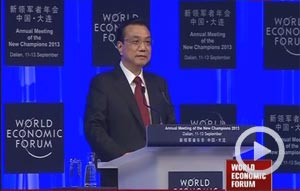Pollution: New standards, old problems
Updated: 2013-09-13 11:11
By Wu Wencong (China Daily)
|
||||||||
A unique situation
Environmental experts said that the situation in China is unique because fuel quality upgrades always lag behind vehicle upgrades, irrespective of whether the fuel is diesel or gasoline.
Phase 1 of the gasoline standards was implemented two years after phase 1 of the emissions standards for automobiles. Phase 2 arrived 18 months after phase 2 of the emissions standards, while phase 3 was implemented a year and eight months after phase 3 of the vehicle emissions standards.
In March, Cao Xianghong, a petrochemical expert at the Chinese Academy of Engineering, told China Daily that the fuel quality upgrade has brought an "incomparably greater challenge to Chinese oil refineries than anywhere else in the world".
He said demand for high-quality fuel is growing as the number of vehicles rises, the vehicles become more sophisticated, and the regulations governing the fuel used in them are tightened. A simultaneous upgrade of quality and expansion of production will require a huge equipment upgrade, which will take at least three years.
"For example, a key process in the production of low-sulfur gasoline and diesel is hydrodesulfurization, which requires both high temperatures and high pressure," said Cao. "But very few domestic oil-equipment manufacturers are capable of producing equipment that can create such conditions. So it's impossible to implement a fuel standard as soon as it is released."
Yue from the Chinese Research Academy of Environmental Sciences saw things from a different perspective.
He said the shortage of high-quality fuel could easily be solved by market-oriented reforms that would prevent the cartel formed by Sinopec, China National Petroleum Corporation, China National Offshore Oil Corporation and other major State-owned companies, from setting the standards for fuel provision.
"The markets for both crude and refined oil should be fully opened up to private enterprise and foreign-funded businesses to form an open market like the one in Europe," said Yue.
Wang Jianxin, a researcher at the State Key Laboratory of Automotive Safety and Energy at Tsinghua University, said, "The market should be at least partially opened, perhaps one-half or one-third. That could result in a significant drop in the price of fuel."
Jiang Xueqing and Tang Yue contributed to this story.
wuwencong@chinadaily.com.cn
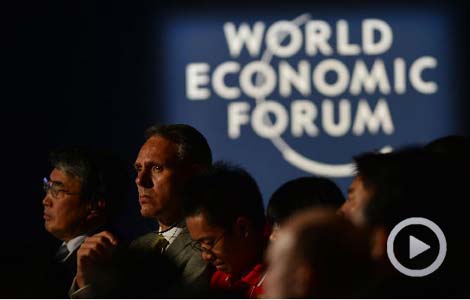
 Experts discuss Chinese premier's economic plan
Experts discuss Chinese premier's economic plan
 Voyager 1 has left solar system: NASA
Voyager 1 has left solar system: NASA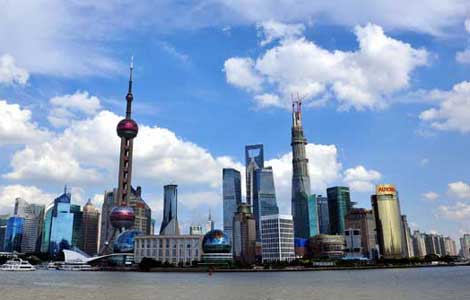
 Time of opportunities, challenges
Time of opportunities, challenges
 Plenty of fizz
Plenty of fizz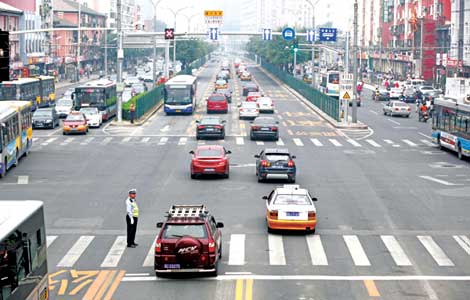
 Traffic about-face seeks to ease congestion
Traffic about-face seeks to ease congestion
 Another iPhone4 explodes while charging
Another iPhone4 explodes while charging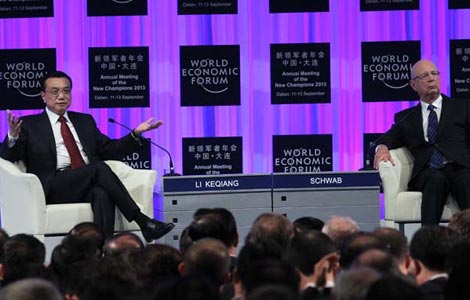
 Premier stresses transformation of the economy
Premier stresses transformation of the economy
 Soyuz capsule returns from space station
Soyuz capsule returns from space station
Most Viewed
Editor's Picks

|

|

|

|

|

|
Today's Top News
WB head to discuss climate in China visit
US moves against China firms criticized
3 sentenced to death for Xinjiang terror attack
Xi welcomes talks on Iran
Assad agrees to hand over chemical weapons
Time of opportunities, challenges
China sets caps for rare earths exploration
Ending non-tariff barriers benefits global economy
US Weekly

|

|
